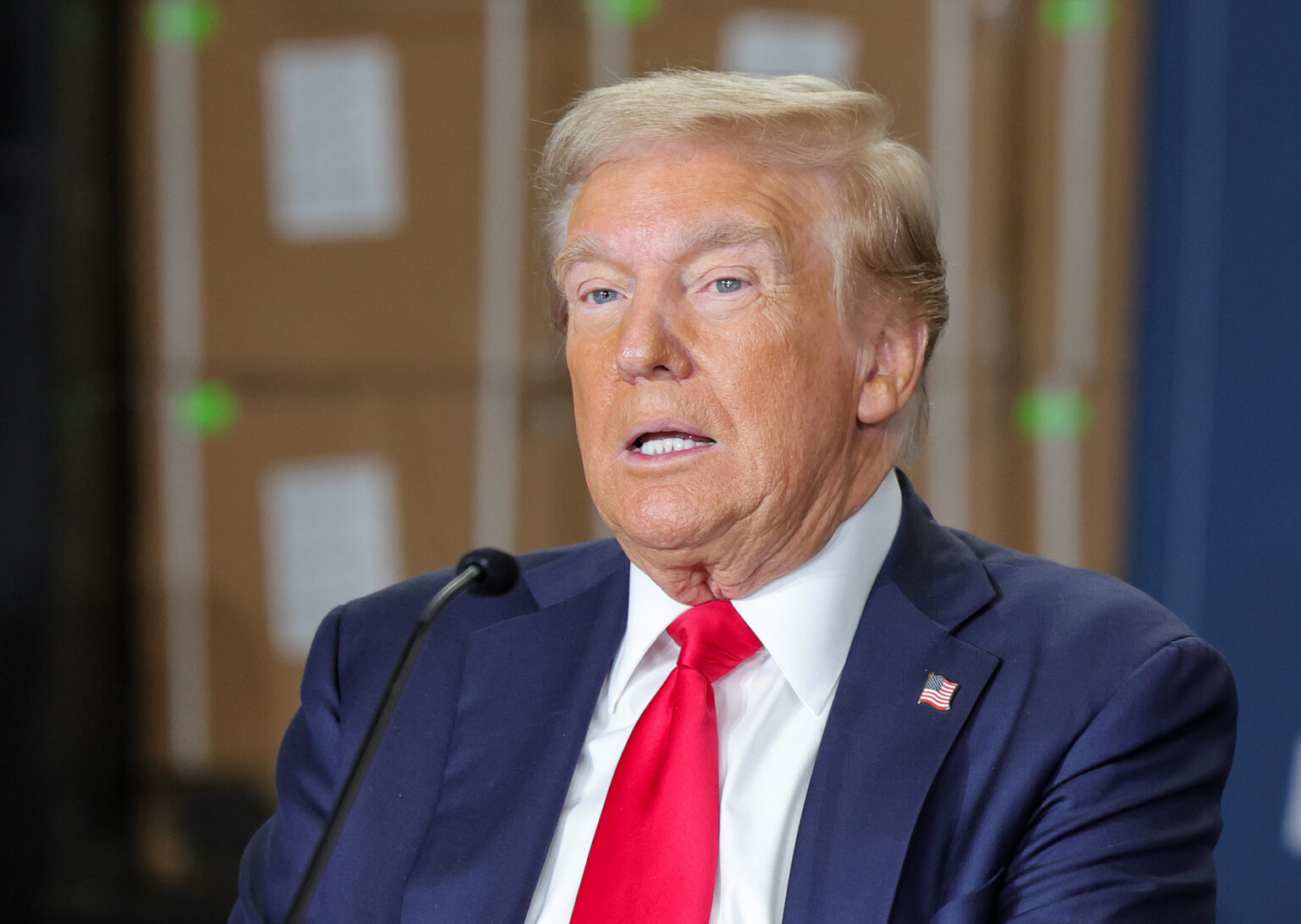Fox News host Maria Bartiromo confronted former President Donald Trump on Sunday about his economic plans that some economists said would raise the national debt and increase prices for consumers.
Trump, the GOP presidential nominee, has proposed significant tariffs as a core part of his economic plan if he gets a second term in the White House. In addition to the 10 percent tariff on all imported goods to address trade imbalances and reduce the trade deficit, he has suggested a more targeted 60 percent tariff on goods imported from China, aiming to pressure it on trade practices. These tariffs are intended to generate revenue, potentially raising around $3.7 trillion over a decade, but they could also impact consumer prices and international trade relations.
Since Trump revealed his economic plans, economists have warned that his policy proposals are projected to add $7.5 trillion to the debt under the central estimate, stemming from $10.2 trillion in deficit-increasing measures, $3.7 trillion in deficit-reducing efforts, and $1 trillion in interest, according to the Committee for a Responsible Federal Budget (CRFB), a nonpartisan, nonprofit organization that addresses federal budget and fiscal issues.
Under a more optimistic, low-cost scenario, his plans would add $1.45 trillion to the debt, while the high-cost scenario could see an increase of $15.15 trillion by 2035.
Meanwhile, estimates from the CRFB stated Democratic nominee Vice President Kamala Harris’ policies would increase the national debt by $3.5 trillion by FY 2035, assuming a central estimate.
This would come from $7.25 trillion in deficit-increasing measures, $4.25 trillion in deficit-reducing actions, and an additional $500 billion in interest costs. On the lower end, her proposals could avoid adding to the debt, but under the high-cost scenario, the debt could increase by as much as $8.10 trillion.
National debt in the U.S. exceeded $35.26 trillion in August 2024, according to U.S. Treasury Department data, the highest in absolute terms it has ever been. This amounts to about $100,000 per person in a nation with around 337 million people, at a time when the economy was found to be the main concern of American voters in the lead-up to this year’s election, per a Pew Research Center poll that was published last month.
In a Sunday interview on Fox News’ Sunday Morning Futures with Maria Bartiromo, Trump was asked about several of his economic plans including tariffs and “how he will pay for it” due to the CRFB’s projected debt increase.
The former president responded: “If I do this, you’re gonna have car companies coming back to the country because of the taxes and the tariffs. The tariffs will protect them when they come in so they will protect from other companies coming in because if the other companies don’t come in, they are going to have to pay massive tariffs.”
Bartiromo then asked, “What about the criticism that if you do put something like a 200 percent tariff on a product, that it’s only gonna mean higher prices for consumers?”
Trump, in response, denied that claim, “No it’s not. No, no.” However, Bartiromo interjected: “It’s got to be passed on somehow.”
Trump reiterated that his plan would deter foreign companies from “hurting our car companies.”
“I put 200 or 500 I don’t care, I’ll put a number where they can’t sell one car into the United States because I don’t want them hurting our car companies. We are going to have a lot of car companies moving into the United States. When I use 200, I’m using it as a number, I don’t want their car. They will not be able to sell cars. I’m not going to let them build a factory right across the border and sell millions of cars into the United States.”
Newsweek has reached out to Trump’s campaign via email for comment.
In response to Trump’s remarks, Bradley P. Moss, a lawyer who specializes in national security, praised Bartiromo’s line of questioning, but condemned Trump’s answer in a post on X, formerly Twitter.
“Color me shocked but Bartiromo actually asking some decent questions here. Trump’s answer is garbage. He has no answer for the higher prices we will pay other than some fantasy in which China just stops selling products completely,” he wrote.
Meanwhile, Trump’s remarks come after a report published by the Canadian Chamber of Commerce has warned that Trump’s U.S. tariff policies could drastically damage the economies of both countries if implemented.
The report, commissioned by Canada’s leading economic body, predicted that tariffs of 10 percent—which Trump has proposed repeatedly during his presidential campaign—could reduce U.S. incomes by as much as 0.6 percent and cut labor productivity by 0.5 percent.
In a worst-case scenario, if other countries retaliated to the U.S. hiking tariffs, the research estimated that annual Canadian incomes could fall by 1.5 percent and U.S. incomes by 1 percent. That equates to American citizens losing an average of $800 each a year in income.
The report’s author, Trevor Tombe, an economist and professor at the University of Calgary, told Newsweek that some of the U.S.’s most significant industries would be the worst hit by the tariffs, highlighting the energy sector and the motor industry in particular.
Read the full article here

